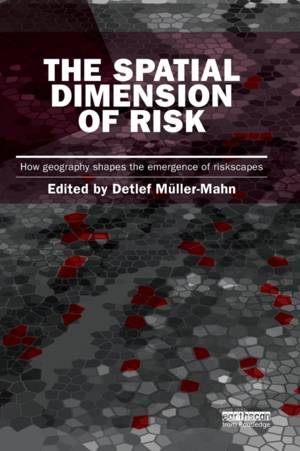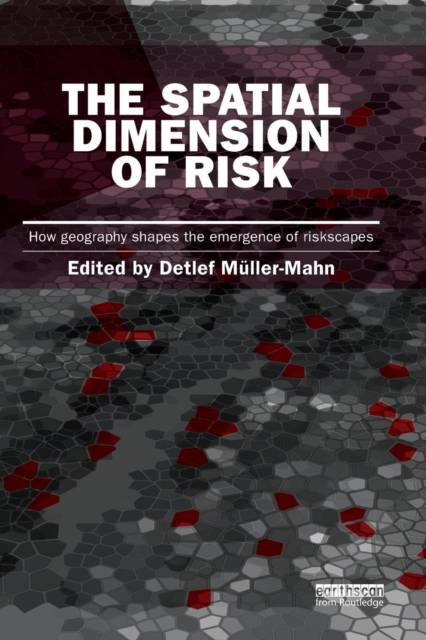
- Retrait gratuit dans votre magasin Club
- 7.000.000 titres dans notre catalogue
- Payer en toute sécurité
- Toujours un magasin près de chez vous
- Retrait gratuit dans votre magasin Club
- 7.000.000 titres dans notre catalogue
- Payer en toute sécurité
- Toujours un magasin près de chez vous
The Spatial Dimension of Risk
How Geography Shapes the Emergence of Riskscapes
Description
Through its exploration of the spatial dimension of risk, this book offers a brand new approach to theorizing risk, and significant improvements in how to manage, tolerate and take risks. A broad range of risks are examined, including natural hazards, climate change, political violence, and state failure. Case studies range from the Congo to Central Asia, from tsunami in Japan and civil war affected areas in Sri Lanka to avalanche hazards in Austria. In each of these cases, the authors examine the importance and role of space in the causes and differentiation of risk, in how we can conceptualize risk from a spatial perspective and in the relevance of space and locality for risk governance. This new approach - endorsed by Ragnar Löfstedt and Ortwin Renn, two of the world's leading and most prolific risk analysts - is essential reading for those charged with studying, anticipating and managing risks.
Spécifications
Parties prenantes
- Editeur:
Contenu
- Nombre de pages :
- 264
- Langue:
- Anglais
- Collection :
Caractéristiques
- EAN:
- 9781138900943
- Date de parution :
- 22-05-15
- Format:
- Livre broché
- Format numérique:
- Trade paperback (VS)
- Dimensions :
- 150 mm x 229 mm
- Poids :
- 430 g






